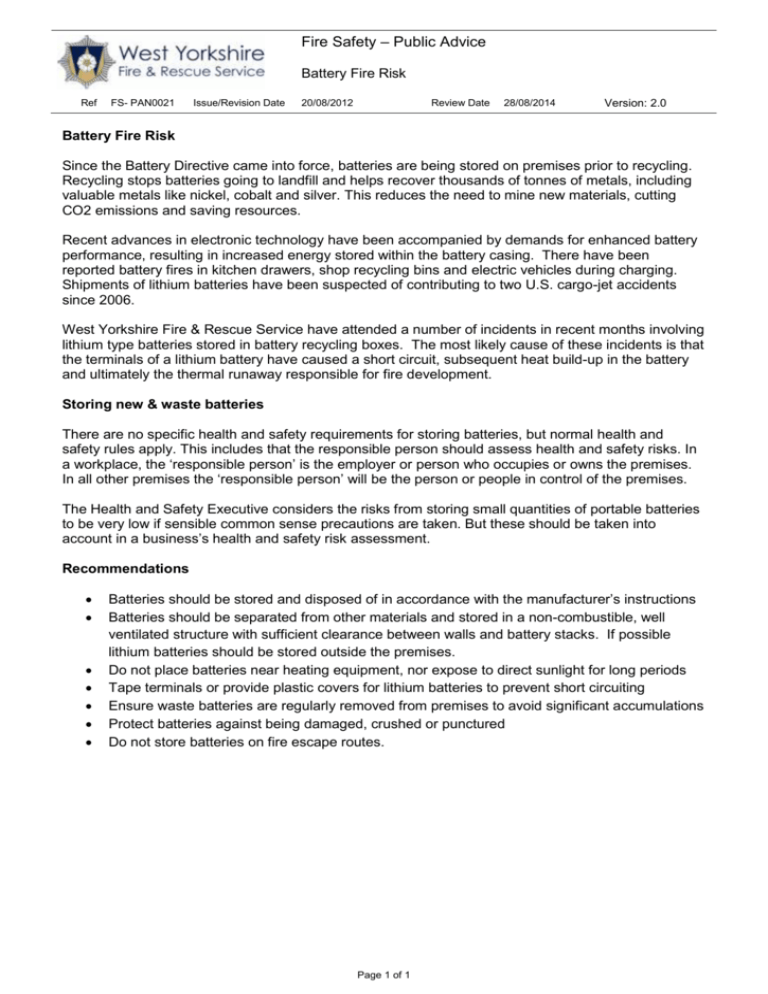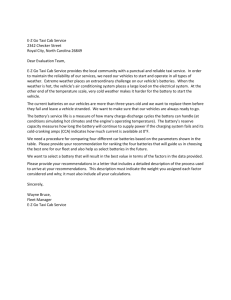Battery Fire Risk - West Yorkshire Fire & Rescue Service
advertisement

Fire Safety – Public Advice Battery Fire Risk Ref FS- PAN0021 Issue/Revision Date 20/08/2012 Review Date 28/08/2014 Version: 2.0 Battery Fire Risk Since the Battery Directive came into force, batteries are being stored on premises prior to recycling. Recycling stops batteries going to landfill and helps recover thousands of tonnes of metals, including valuable metals like nickel, cobalt and silver. This reduces the need to mine new materials, cutting CO2 emissions and saving resources. Recent advances in electronic technology have been accompanied by demands for enhanced battery performance, resulting in increased energy stored within the battery casing. There have been reported battery fires in kitchen drawers, shop recycling bins and electric vehicles during charging. Shipments of lithium batteries have been suspected of contributing to two U.S. cargo-jet accidents since 2006. West Yorkshire Fire & Rescue Service have attended a number of incidents in recent months involving lithium type batteries stored in battery recycling boxes. The most likely cause of these incidents is that the terminals of a lithium battery have caused a short circuit, subsequent heat build-up in the battery and ultimately the thermal runaway responsible for fire development. Storing new & waste batteries There are no specific health and safety requirements for storing batteries, but normal health and safety rules apply. This includes that the responsible person should assess health and safety risks. In a workplace, the ‘responsible person’ is the employer or person who occupies or owns the premises. In all other premises the ‘responsible person’ will be the person or people in control of the premises. The Health and Safety Executive considers the risks from storing small quantities of portable batteries to be very low if sensible common sense precautions are taken. But these should be taken into account in a business’s health and safety risk assessment. Recommendations Batteries should be stored and disposed of in accordance with the manufacturer’s instructions Batteries should be separated from other materials and stored in a non-combustible, well ventilated structure with sufficient clearance between walls and battery stacks. If possible lithium batteries should be stored outside the premises. Do not place batteries near heating equipment, nor expose to direct sunlight for long periods Tape terminals or provide plastic covers for lithium batteries to prevent short circuiting Ensure waste batteries are regularly removed from premises to avoid significant accumulations Protect batteries against being damaged, crushed or punctured Do not store batteries on fire escape routes. Page 1 of 1






